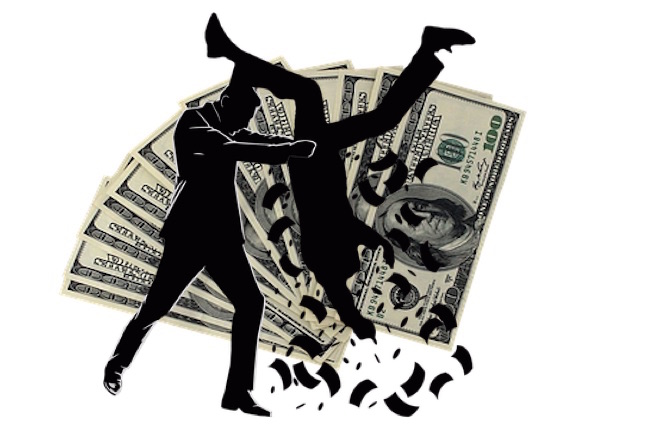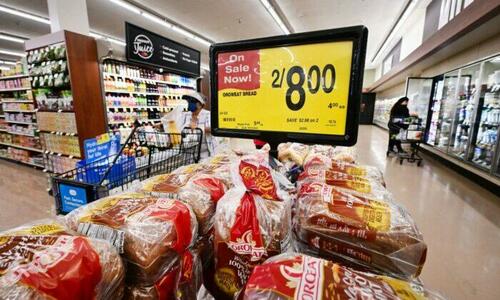Inflation Costing Average American Family $11,500 This Year Authored by Katabella Roberts via The Epoch Times, via The Burning Platform
Americans are set to fork out an extra $11,500 this year if they want to enjoy the same standard of living they maintained in 2020, according to new estimates from NerdWallet.
The estimates, published in August, were based on inflation and annual spending data from the U.S. Bureau of Labor Statistics (BLS). Analysts at NerdWallet looked at how spending would compare this year to 2020 when the COVID-19 pandemic began.
Analysts said 2020 was the “last full year when inflation was relatively stable.” In that same year, the U.S. inflation rate was 1.23 percent.
As of August, inflation in the United States stands at 8.3 percent, according to data from BLS.
“In all of 2020, American households spent $61,300, on average,” according to analysts.
“This number includes everything we spend our money on: housing, food, entertainment, clothing, transportation, and everything else.”
“In 2022, it stands to reach $72,900, a difference of more than $11,500 if consumers want to maintain the same standard of living,” they wrote.
NerdWallet analysts said that this is an average estimate, and therefore one that is “exact to a very few.”
“Those who earn (and therefore spend) more will see more dramatic dollar increases. Those who earn less may see less dramatic dollar jumps, but the impact of these rising prices could be more significantly felt,” they wrote.
According to analysts, total monthly household expenditures are up $961 from 2020, while spending on groceries is up $101. Shelter is up $120 and household utilities are up $70 per household, while gasoline has risen by a whopping $209.
Another Fed Rate Hike
NerdWallet noted that spending figures for 2020 were less than typical given that COVID-19 pandemic restrictions meant that fewer people were commuting, or forking out for childcare and entertainment, resulting in an overall decline in spending.





